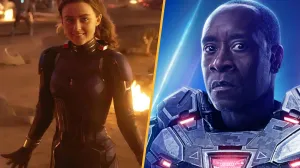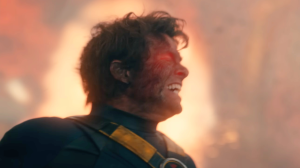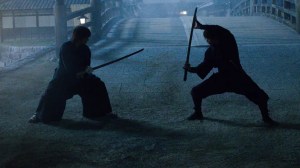While it’s easy to default to Marvel and DC when one thinks of comic books on the big screen, more movies have graphic novel origins than you may think. Graphic novels and comic books are particularly well-suited for film adaptations given that many movies initially look like graphic novels when a director storyboards out their shots before commencing principal photography. Even so, basing a film off a comic book doesn’t always guarantee success — it requires a deft hand and vision.
Videos by ComicBook.com
When done right, though, a comic book film can have an indelible effect on both mediums, so we’ve ranked the four most influential page to screen adaptations that aren’t from Marvel or DC.
4) Snowpiercer

Snowpiercer serving as the vehicle that introduced visionary filmmaker Bong Joon Ho to the global cinematic stage is reason enough for the film to make this list. Adapted from the French graphic novel Le Transperceneige by Jacques Lob and Jean-Marc Rochette, Bong excels at creating a film whose pace is as swift and unyielding as the dystopian train it’s set on, all while crafting a salient, haunting metaphor for class, climate change, and unchecked capitalism.
On its surface, Snowpiercer‘s influence can be seen in the four-season-long spin-off television series it spawned, however, the film also redefined the scale needed to tell an effective, imaginative comic book adaptation. Snowpiercer‘s contained and sometimes claustrophobic setting arguably better demonstrates the parable of greed it’s trying to tell and diverts from its source material’s ending to conclude with an ambiguous, fragile message of hope.
3) 300

While the Spartan army may have succumbed to their Persian foes in 300, they certainly conquered pop culture when Zack Snyder’s adaptation of the graphic novel by Frank Miller and Lynn Varley hit theaters in 2006. The film became a worldwide phenomenon, grossing nearly a half a billion dollars at the worldwide box office and presenting a fresh vision of stylization on screen when telling the story of King Leonidas and his indefatigable army of warriors.
Beyond launching the career of Snyder — who went on to direct other seminal graphic novel adaptations like Watchmen and launched the DC Extended Universe — Snyder’s and cinematographer Larry Fong’s visual storytelling changed the game regarding how action is portrayed. Snyder’s use of slow motion and close up uniquely translated Miller’s graphic novel for the screen — expertly alternating between relentless battle scenes and isolated moments that feel like panels or splash pages come to life that countless filmmakers have referenced since.
2) American Splendor

American Splendor pushed the boundaries and collective imagination of what a comic book adaptation can be. While most default to superheroes, action, science fiction, or some combination of all three, Shari Springer Berman and Robert Pulcini’s film elegantly demonstrated that the medium can just as beautifully tell an intimate story as it can tell a sweeping, fantastical one.
Pulling from prolific writer Harvey Pekar’s series of the same name and his graphic novel Our Cancer Year, American Splendor bends genre and format seamlessly, and was lauded by critics, earning an Academy Award nomination for Best Adapted Screenplay. The film not only shone a finely tuned light on a less popular genre of comic storytelling but created something wholly unique. American Splendor goes beyond serving as an influence for filmmakers looking to expand the scope of a graphic novel adaptation. It’s also a touchstone for a moving portrait of the everyman in cinema.
1) Heavy Metal

The list of filmmakers that cite the 1981 animated anthology Heavy Metal as an inspiration is formidable — everyone from Ridley Scott, Guillermo del Toro, to James Cameron, and even David Fincher have referenced the cult classic film. Based on the stories from the science fiction comics magazine, Ghostbusters director Ivan Reitman produced the decidedly not kid-friendly anthology and revolutionized the production process by having several animation houses work on the various segments simultaneously — a process currently emulated by Fincher for the acclaimed series Love, Death, + Robots. The influence of Heavy Metal‘s mix of adult animated content along with an iconic soundtrack goes beyond Hollywood too — the film allegedly inspired Elon Musk’s decision to launch a Tesla Roadster into space, which parallels Heavy Metal‘s opening “Soft Landing,” where a space traveller lands on Earth in a Corvette.









